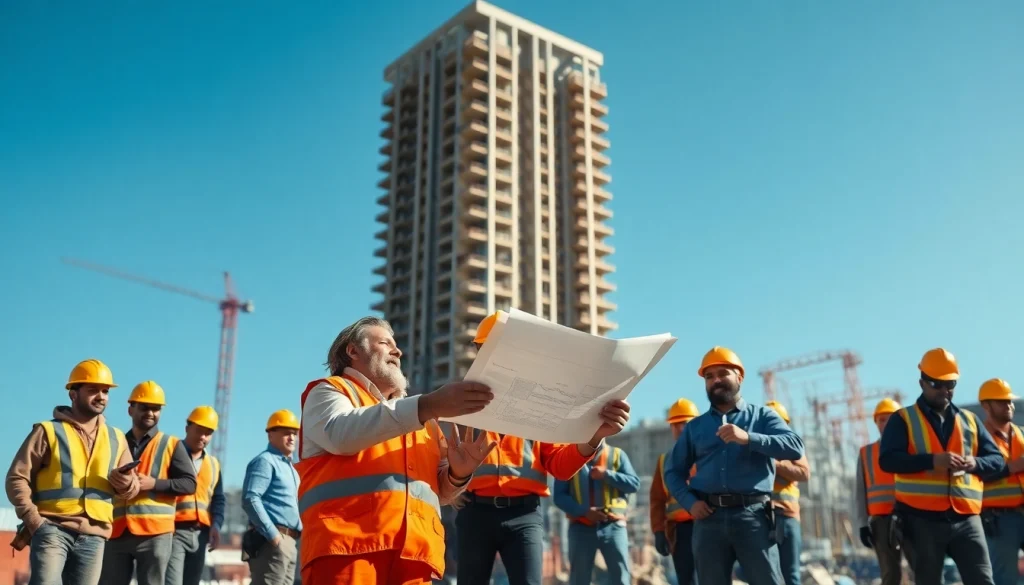Understanding the Role of a Manhattan Commercial General Contractor
What Does a Manhattan Commercial General Contractor Do?
A Manhattan Commercial General Contractor plays a pivotal role in the successful completion of construction projects, encompassing everything from office buildings and retail spaces to restaurants and hotels. This professional is responsible for the overall management of a construction project, acting as a liaison between various stakeholders, including clients, architects, suppliers, and subcontractors. The contractor oversees all aspects of the project, ensuring that it stays on budget and on schedule while complying with local building codes and regulations.
In addition to managing the day-to-day operations, a Manhattan Commercial General Contractor is also heavily involved in the planning phase. This includes assessing project feasibility, preparing budgets, negotiating contracts, and scheduling work. With vast networks of subcontractors and suppliers, experienced general contractors can source quality materials at competitive prices, thereby providing value to the project.
Importance of Experience in Urban Projects
Experience is crucial for any Manhattan Commercial General Contractor, particularly in urban environments characterized by limited space, dense populations, and complex regulatory frameworks. An experienced contractor will typically have an in-depth understanding of local building codes, zoning regulations, and permits, which can greatly simplify the construction process.
Additionally, urban projects often involve unique challenges such as limited access to the job site, the need to navigate surrounding businesses and residences, and strict noise ordinances. A seasoned contractor will possess the problem-solving skills necessary to address these hurdles efficiently and effectively, ensuring minimal disruptions to the community while adhering to project timelines.
Key Skills to Look For
When selecting a Manhattan Commercial General Contractor, certain skills are essential for success. Firstly, strong project management skills are required to coordinate various aspects of construction, including scheduling, budgeting, and resource allocation. Effective communication is another critical skill, as the contractor must liaise with multiple parties to keep everyone informed about project progress and decisions.
Additionally, technical skills related to construction methods, materials, and safety regulations are vital. This knowledge ensures that the work is not only completed to a high standard but also meets all safety and legal requirements. Finally, problem-solving and conflict resolution skills are essential for addressing any challenges that may arise during the project, from unforeseen structural issues to coordinating schedules with subcontractors.
How to Select the Right Manhattan Commercial General Contractor
Defining Your Project Requirements
Before starting your search for a general contractor, it’s essential to define your project requirements clearly. This includes establishing your budget, timeline, and specific needs for the construction project. Consider what type of space you are building, how it will be used, and any special requirements, such as sustainability features or accessibility modifications.
Having a comprehensive understanding of your project needs will help you communicate effectively with potential contractors, ensuring that they can meet your expectations. Furthermore, it enables contractors to provide accurate estimates and timelines based on a clear picture of the project’s scope.
Evaluating Portfolios and References
Once you have defined your project requirements, the next step is to evaluate potential contractors based on their portfolios and references. A robust portfolio will showcase the contractor’s previous work, including various styles and types of projects they have completed. Look for projects similar to yours to gauge their experience and expertise.
Additionally, asking for and contacting references is crucial. Speaking to past clients can provide insight into the contractor’s reliability, communication skills, and overall performance. Consider asking open-ended questions to understand the contractor’s strengths and weaknesses better, gathering critical information that will inform your decision.
Interview Questions to Consider
When interviewing potential Manhattan Commercial General Contractors, asking the right questions is vital to help you gauge their capabilities and compatibility with your project. Here are several questions you might consider:
- How long have you been in the construction business, and what types of projects have you completed?
- Can you provide references from recent projects, and may I visit those sites?
- What is your approach to project management and communication with clients?
- How do you handle unexpected challenges or delays during a project?
- What is your process for ensuring compliance with local regulations and building codes?
These questions will help you assess not only the contractor’s qualifications but also their approach to client relationships and their problem-solving methodologies.
Common Challenges Faced by Manhattan Commercial General Contractors
Navigating Local Regulations and Permits
One of the most common challenges faced by a Manhattan Commercial General Contractor is navigating the complex local regulations and permit processes involved in construction. New York City has stringent building codes and zoning laws that can be cumbersome to interpret. An experienced contractor will have the knowledge necessary to ensure compliance, avoiding costly delays and fines.
Moreover, maintaining an updated understanding of changes to regulations is crucial, as local laws can evolve based on community needs or safety concerns. Strong relationships with local government officials can also aid in expediting permit approvals and necessary inspections.
Managing Client Expectations
Another common challenge in construction is managing client expectations, particularly when it comes to timelines and budgets. Clients often have high hopes for what can be achieved, and if these expectations aren’t realistic, it can lead to dissatisfaction. A competent Manhattan Commercial General Contractor will work hard to communicate transparently, setting realistic milestones and explaining the factors that can impact timelines and costs.
Regular updates and open lines of communication can help bridge the gap between client expectations and the realities of construction, fostering a productive working relationship.
Mitigating Risks in High-Rise Construction
High-rise construction presents unique obstacles and risks, which can significantly impact the overall project. These challenges include structural integrity concerns, safety issues, and logistical complexities. A seasoned contractor must implement rigorous risk management strategies specific to high-rise builds.
This includes comprehensive safety training for workers, strict adherence to building codes, and constantly assessing the project for potential risks. Furthermore, contingency plans must be in place to address any unforeseen circumstances, such as weather delays or supply chain disruptions. Proactive risk management not only protects the project but also helps maintain a positive relationship with clients.
Best Practices for Collaborating with Your Contractor
Establishing Clear Communication Channels
Effective collaboration is essential to the success of any construction project. One of the first steps is establishing clear communication channels between you and your Manhattan Commercial General Contractor. Regular meetings, progress reports, and updates are vital in ensuring that all parties are aligned on the project status and any changes that may arise.
Additionally, utilizing communication tools, such as project management software, can facilitate collaboration and information flow between different stakeholders, ensuring everyone is on the same page throughout the construction process.
Utilizing Technology for Project Management
In today’s digital age, leveraging technology can significantly enhance project management efficiency. Many Manhattan Commercial General Contractors now use sophisticated software tools to track expenses, manage timelines, and coordinate with subcontractors. These platforms enable real-time updates and data sharing, minimizing the chances of misunderstandings or miscommunication.
Moreover, integrating Building Information Modeling (BIM) can improve visualization and planning phases, allowing you to see the project in a 3D environment and make informed decisions based on accurate data.
Setting Milestones and Performance Metrics
Setting clear milestones and performance metrics is another best practice for collaboration. These benchmarks provide a framework for evaluating progress and ensuring that the project remains on track. Discussing these milestones openly with your contractor creates mutual understanding and accountability.
Key performance indicators (KPIs) might include adherence to timelines, budget variance, and quality assurance metrics. Regularly reviewing these indicators allows for timely adjustments to be made, optimizing the project’s outcome and ensuring client satisfaction.
Evaluating the Success of Your Construction Project
Key Performance Indicators for Project Assessment
In evaluating the success of your construction project, establishing Key Performance Indicators (KPIs) is fundamental. Common KPIs for construction projects may include budget adherence, timeline management, safety incidents, and quality of workmanship. Analyzing these factors provides insight into the overall effectiveness of the construction process and the Manhattan Commercial General Contractor’s performance.
Furthermore, conducting post-project evaluations helps identify areas for improvement in future projects and reinforces effective practices that were employed, ensuring continual growth and enhancement of services.
Gathering Feedback and Lessons Learned
Feedback is crucial for assessing both the contractor’s performance and your satisfaction with the project’s results. During project completion, gathering feedback from team members, subcontractors, and stakeholders can provide valuable insights into what went well and what could be improved. This analysis can be used to refine future collaboration processes and better prepare for upcoming projects.
Lessons learned meetings can facilitate open discussions, allowing all parties to voice their experiences. Not only does this foster a culture of continuous improvement, but it also enhances relationships among project stakeholders, setting a solid foundation for future projects.
Celebrating Project Completion
Lastly, it is essential to celebrate the successful completion of a construction project. Acknowledging the hard work and dedication of all parties involved instills a sense of pride and accomplishment. Hosting a completion event or sending appreciation notes can reinforce positive relationships and acknowledge everyone’s contributions to the project.
A strong finish helps maintain ongoing partnerships for future endeavors while leaving a lasting impact as you move forward into new construction ventures.





